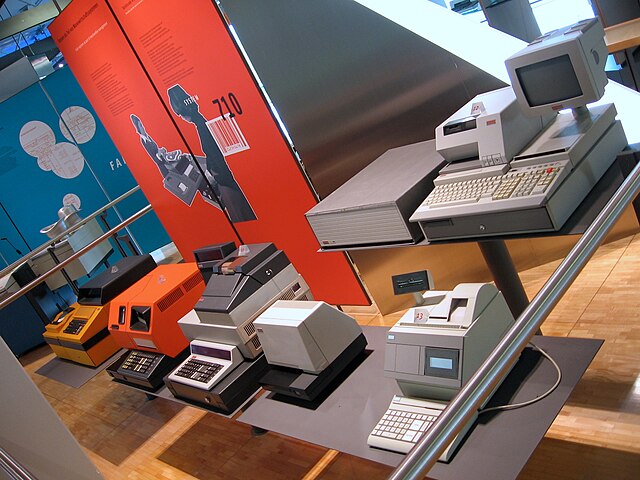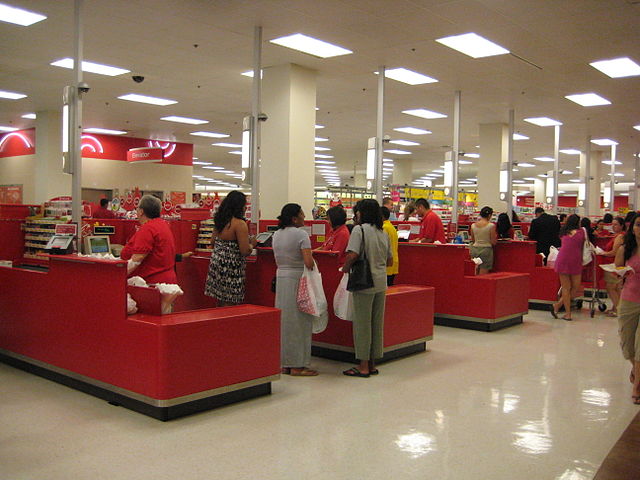A cash register, sometimes called a till, cashbucker, or automated money handling system, is a mechanical or electronic device for registering and calculating transactions at a point of sale. It is usually attached to a drawer for storing cash and other valuables. A modern cash register is usually attached to a printer that can print out receipts for record-keeping purposes.
National cash register from the end of the 19th century, National History Museum, Sofia.
Antique crank-operated cash register, with display showing money in French francs and centimes
Various types of modern cash registers.
Old Canadian general store shopping register model, City of Surrey Museum, British Columbia, Canada
The point of sale (POS) or point of purchase (POP) is the time and place at which a retail transaction is completed. At the point of sale, the merchant calculates the amount owed by the customer, indicates that amount, may prepare an invoice for the customer, and indicates the options for the customer to make payment. It is also the point at which a customer makes a payment to the merchant in exchange for goods or after provision of a service. After receiving payment, the merchant may issue a receipt, as proof of transaction, which is usually printed but can also be dispensed with or sent electronically.
Points of sale at a Target retail store
The counter of a café at the new Centrum department store in Tampere, Finland in 1961
McDonald's POS device by Brobeck
Points of sale at a grocery store in Ilorin, Nigeria








